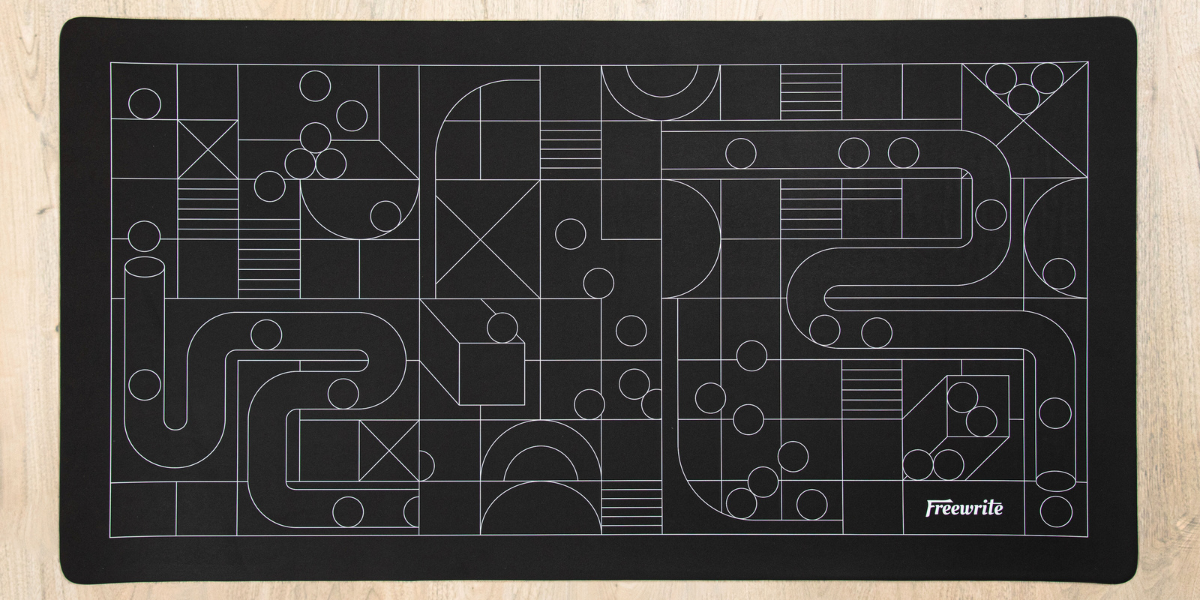An interview with Matt Pamer, designer on the Freewrite Assembly deskmat:
What inspired you in creation of the Assembly design?
I was inspired by retro-futurism, instructional diagrams, science fiction, and Rube Goldberg illustrations. During the sketch phase an overall theme emerged: finding a way to visually represent the creative process.
What did some of your initial thoughts and sketches look like?
My directions included everything from really detailed collages, to typographic focused designs, to abstract patterns.
How did you decide on and lay out the forms?
Because the design was for a deskmat I wanted to create something that was minimal and understated. I didn't want it to draw too much attention in the context of everything else that's on someone's desk so it made sense to go with a black and white design with simple linework.
What aspect of the design are you the most pleased with or excited about?
I was pleased that the design tells a story with simple forms. At the same time I think it's deceptively detailed and rewards multiple viewings.
What do you hope customers take away from this print design when they see it?
I hope people appreciate the thought that went into the design, but ultimately I want people to take away their own personal ideas and interpretations from it.
What design software do you use?
I use all of the basic Adobe products (Illustrator, Photoshop, Indesign) as well as Figma for digital work and Procreate for sketching.
What’s on your desk?
My desk currently has a pile of old sketchbooks and pantone swatches.
What exciting things are you working on now?
I'm currently working on branding for a music festival as well as a series of illustration for a university publication.
And, what are you reading right now?
The Lathe of Heaven by Ursula K. Le Guin and Bauhaus Travel Book by various authors.
Thanks, Matt!





















